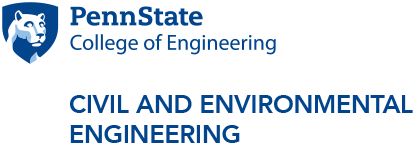Energy Fluxes in Streams and Rivers
Abstract
Primary productivity is a fundamental ecological process that reflects autotrophic biomass dynamics, supports food webs, and influences biogeochemical cycles in rivers. Our ability to understand and predict temporal variation in river ecosystem productivity is rapidly advancing, driven by a recent proliferation of daily ecosystem process estimates from high-frequency sensor data from hundreds of rivers. In the first talk of this series, we discuss ecological insights into controls on the timing and magnitude of ecosystem productivity by harnessing the highly dynamic nature of productivity in rivers and data-driven models. We investigated macroscale controls on river-specific disturbance flow thresholds and productivity recovery rates following flooding disturbances. In a continental-scale analysis, we found that wider rivers with less regulated flow regimes recover fastest. We discuss contradictory results as to whether the magnitude of flooding necessary to disturb benthic autotrophic biomass is greater than peak flows necessary to initiate mobilization of bed sediments.
In the second part of this talk, we will focus on the connections between streamflow, primary production, and external organic matter inputs that drive patterns in whole-ecosystem respiration in streams and rivers. We know respiration contributes to CO2 emissions from inland waters and is sustained by a diverse mixture of organic matter sources, but the different fates and reactivities of organic matter inputs are still rarely linked to changes in metabolic rates within and across ecosystems. We used monitoring, experimental, and modeling approaches to integrate high-frequency sensor data and stable isotope tracers with aerobic ecosystem respiration to quantify relationships between organic matter, flow, and metabolism dynamics. We will illustrate how linking organic matter sources with rates of whole-stream respiration and flow disturbances can advance our understanding of organic matter reactivity and fate.
Bio
Dr. Joanna Blaszczak is an Assistant Professor in the Department of Natural Resources and Environmental Science at the University of Nevada Reno. A central goal of her lab’s research is to investigate the mechanisms underlying how global change is altering freshwater ecosystem energy fluxes, benthic communities, and material transport and transformations. Her research melds field, laboratory, and modeling approaches to address questions in freshwater ecosystem ecology, with the ultimate goal of testing ecological theory and informing freshwater resource management. She holds a PhD in Ecology from Duke University and was a postdoctoral research associate at the Flathead Lake Biological Station. She enjoys skiing and hiking in the northern Sierras with her family including two boisterous dogs.
Bio
Dr. Erin Hotchkiss is an Associate Professor in the Department of Biological Sciences and a Faculty Affiliate of the Global Change Center at Virginia Tech. She received her PhD in Ecology from the University of Wyoming and worked as a postdoctoral fellow at Umeå University, Sweden and Université du Québec à Montréal, Canada. Hotchkiss was the 2016 recipient of the Society for Freshwater Science Hynes Award for New Investigators and the Association for the Sciences of Limnology and Oceanography (ASLO) Raymond L. Lindeman Award; she became an ASLO Fellow in 2023. Ongoing research in her lab group and through other collaborations is exploring how environmental change, land-water interactions, & ecosystem processes shape the transport, transformation, and fate of carbon, nutrients, and pollutants in freshwaters.
Event Contact: Li Li



